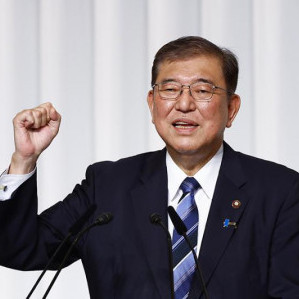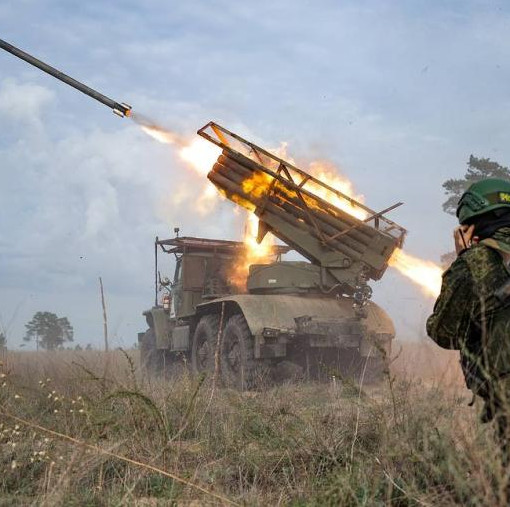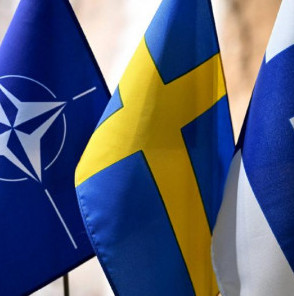Few people were surprised by the scandalous news from Tbilisi. The young reformers and revolutionaries who came to power a year ago have made Georgian people – as well as the world at large, for that matter - used to the idea that whatever they are doing they are doing it in a grand, high-pitched and hysterical manner. Such is their style. However, the scandal in the Ministry of Defense goes beyond the usual train of scandals that are permanently reverberating in the Tbilisi corridors of power. Indeed, the Georgian President Mikhail Saakashvili has repeatedly alleged that his country's army is being reformed. According to him, it is gradually moving towards NATO standards, and its combat power is on the up-and-up. In his words, "there is a great difference" between the Georgian army of the times of President Shevardnadze and that of today. Based on these allegations, the West has paid out considerable amounts for the modernization of Georgia's armed forces. In 2005 alone about $15 million may be netted, while the total amount of Western military aid to Georgia has already reached $100 million. That is why Mikhail Saakashvili reacted so angrily to the pronouncements of his minion Irakliy Okruashvili who in one single year made a breath-taking career, thanks to his proximity to the president.
During the course of 2004 this 30-year-old Tbilisi lawyer moved from the chair of General Prosecutor to that of Home Minister and finally Defense Minister. Observers say that he will not stop there and may soon become Georgia's Prime-Minister. The scandal stirred by him was actually meant to undermine the present prime-minister Zurab Zhvania's positions whose team the former Defense Minister Georgiy Baramidze was part of.
It is highly probable that in provoking a new scandal in the government Irakliy Okruashvili was guided by political expediency. However, by airing the dirty linen of the Georgian Ministry of Defense in public, he may have unwittingly disclosed Georgia's most guarded military secret. Its core is that the Georgian army is in the midst of its most severe crisis. The topmost functionaries of the Ministry of Defense have been bogged down in corruption, while the lower ranks are deprived of basic necessities.
Indicative of this fact is the case of the Moukhrovan Brigade of the Georgian Armed Forces. Last December about one hundred soldiers and sergeants of this brigade just quitted their base and walked all the way over to the Office of the Georgian Public Defender in Tbilisi to seek justice. The long and the short of the servicemen's plight was aptly put in words by one of the AWOLs Levan Chigogidze: "We have nothing - neither clothes, nor food, we live in abject misery ".
The incident caused a storm of indignation among the Georgian leadership. The President, the Chairman of the Parliament and the Defense Minister (a propos, the very same Irakliy Okruashvili) said the servicemen guilty of the desertion had to be punished. Qualifying the incident as a provocation and instigation of the servicemen to commit unlawful acts, the authorities put the blame on an unnamed "third party", obviously meaning Russia.
However, a preliminary investigation of this incident revealed a much more harsh truth. Georgia's Public Defender (State Ombudsman) Sozar Subari and one of his aides Irakliy Sesiashvili disclosed to the press the real state of affairs in Georgia's armed forces. Military units, they said, lack elementary medications, servicemen complain of water shortages and food problems. Hot water is completely lacking, and fresh water is supplied on a time schedule basis. As a result, "servicemen are infested with parasites, they haven't had a bath for months". Meat is served in the mess hall only when the unit is being inspected by someone from the top command. The barracks lack heating, and a large part of their service time the servicemen spend in the woods gathering firewood for officers' families. Servicemen wear worn-out uniforms that have long outserved all wear-and-tear standards. Due to power shortages the servicemen cannot watch TV nor listen to the radio, they live in a complete information vacuum.
This dispelled the myth of the revival of the Georgian army which was carefully cultivated by Saakashvili. A few hundred Georgian "commandos" trained by US instructors, and sporting NATO-standard uniforms and armed with the newest tommy-guns turned out to be only a ploy, a showcase for occasional Western visitors with well-stuffed wallets. In actual fact, to restore the territorial integrity of the State, drive out Russian military bases and join NATO, Tbilisi officials can offer only a louse-ridden, unwashed, badly dressed and hungry army, ready to desert the cold barracks at any time.
A kind of a logical finale of these scandals in the Georgian armed forces became the news about the adjournment of the widely advertised dislocation of a Georgian battalion to Iraq from January to February. The United States who are responsible for air-lifting the battalion say that at the moment they have no transport for that purpose. The irony is that the coalition needs additional forces in Iraq right in January, on the eve of parliamentary election. However, the Americans, to all appearances, have doubts about the combat efficiency of the Georgian host. So they are not particularly eager to invite the brave Georgian knights to accomplish real combat missions.









